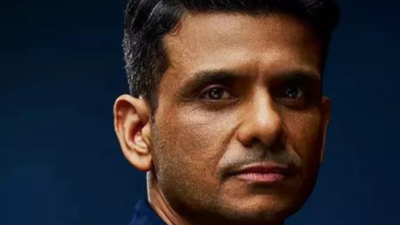Indian astronaut Shubhanshu Shukla (Shux) feels “proud” and “excited” to represent Indian scientists aboard the International Space Station (ISS), and described his role as a “bridge” between research institutions on Earth and the orbiting lab.Speaking from space in a live interaction with Axiom Space’s chief scientist Dr Lucie Low, Shux said, “The Axiom-4 mission is opening the doors for microgravity research for Indian scientists… It is a joy to do this.” He is currently executing a portfolio of experiments designed by Indian institutions under Isro’s coordination.“Isro has collaborated with national institutions all over the country, and they came up with some fantastic research. It is a joy to conduct this for them,” he said, his voice brimming with enthusiasm.Among the most exciting of the studies, according to Shux, is one that investigates the effect of microgravity on stem cells. Scientists are testing whether the addition of certain supplements can enhance recovery or repair mechanisms. Shux has been conducting these experiments inside the glovebox, a sealed environment used to safely handle sensitive biological materials.He also detailed studies examining the growth of seeds in space and experiments that evaluate astronauts’ cognitive load while they interact with digital interfaces on board. These studies are part of a broader push to understand how the human body and mind adapt to extended space travel—insights that could be vital for future missions.“I feel proud to be a bridge between researchers and the station,” Shukla said, adding that the research portfolio spans multiple domains, including human physiology and space agriculture.The live event, coordinated by mission control in Houston, saw Low engaging with the four-member Ax-4 crew — Commander Peggy Whitson, pilot Shux, and mission specialists Slawosz Uznanski and Tibor Kapu — about the science being carried out.Whitson, a veteran astronaut, outlined the diversity of the mission’s research, which includes cancer studies, plant biology, human physiology, and multiple technology demonstrations that aim to enable more inclusive spaceflight. One such effort, she said, is focused on helping people with diabetes safely fly in space.Low reiterated that the Ax-4 crew is supporting research for scientists from eight countries, including India, Poland, Hungary, Brazil, Nigeria, Saudi Arabia, and the UAE.Uznański, who is representing Poland, shared that he has been working on nanomaterials and radiation research, including technology from CERN. He also conducted the first brain-machine interface demonstration in space.Kapu, representing Hungary under the Hunor programme, said they had brought 35 experiments, including brain activity monitoring and plant growth studies. “My radishes, wheat and peppers are growing extremely fast… I might take up gardening as a hobby,” he joked.“Everything you’re doing is opening the door for more scientists in future,” Low said, adding that the mission represents a growing global scientific community contributing to microgravity research.







